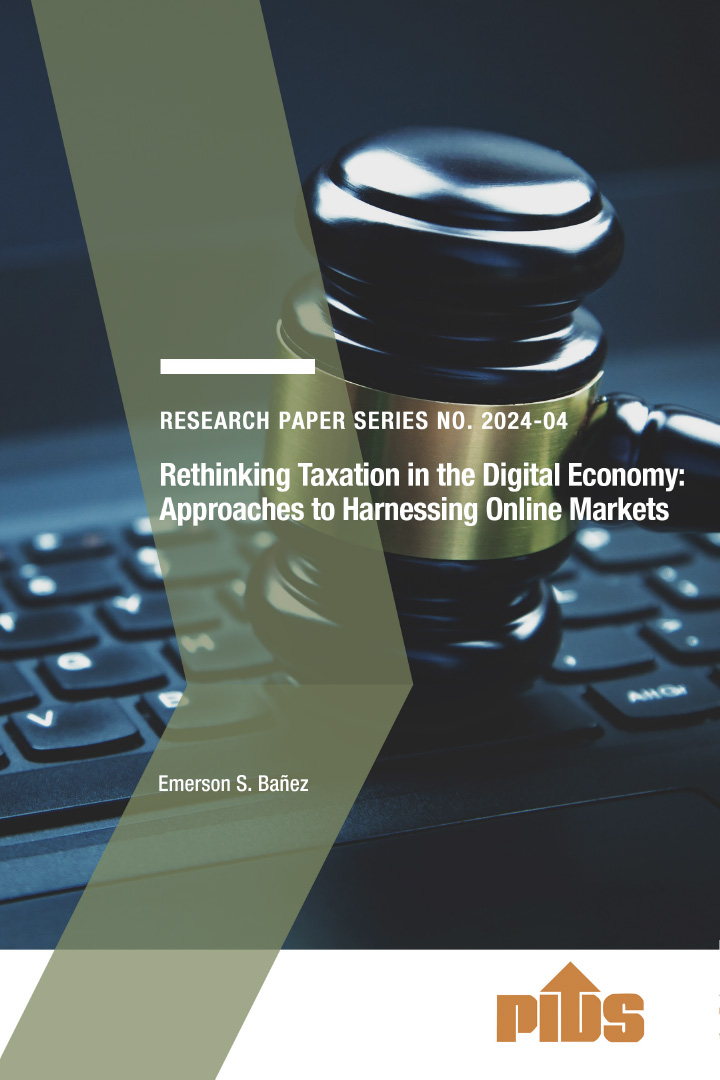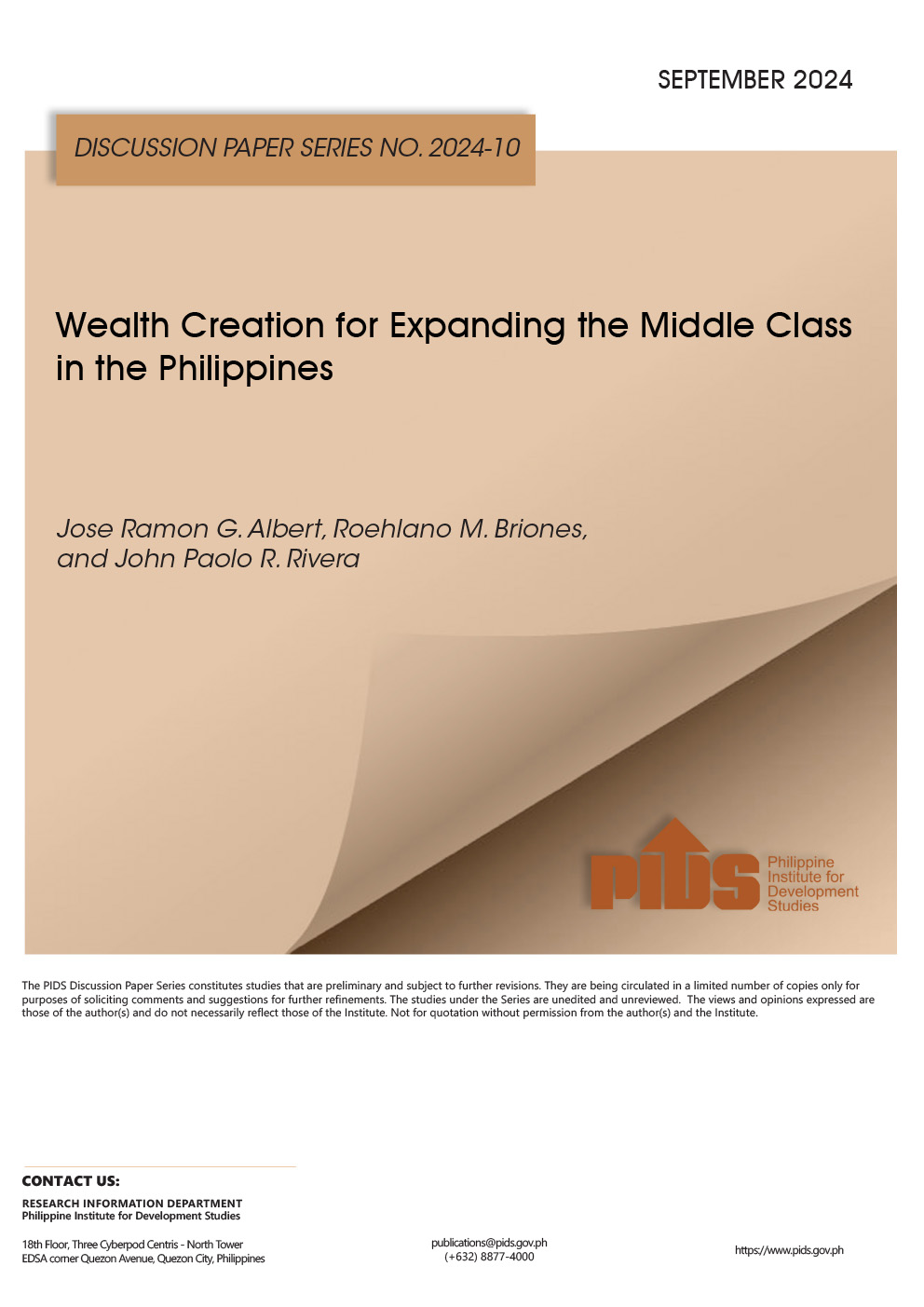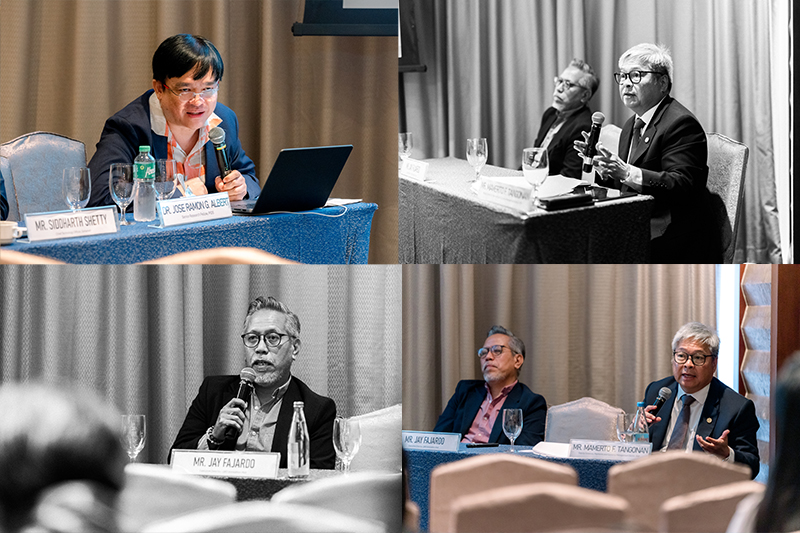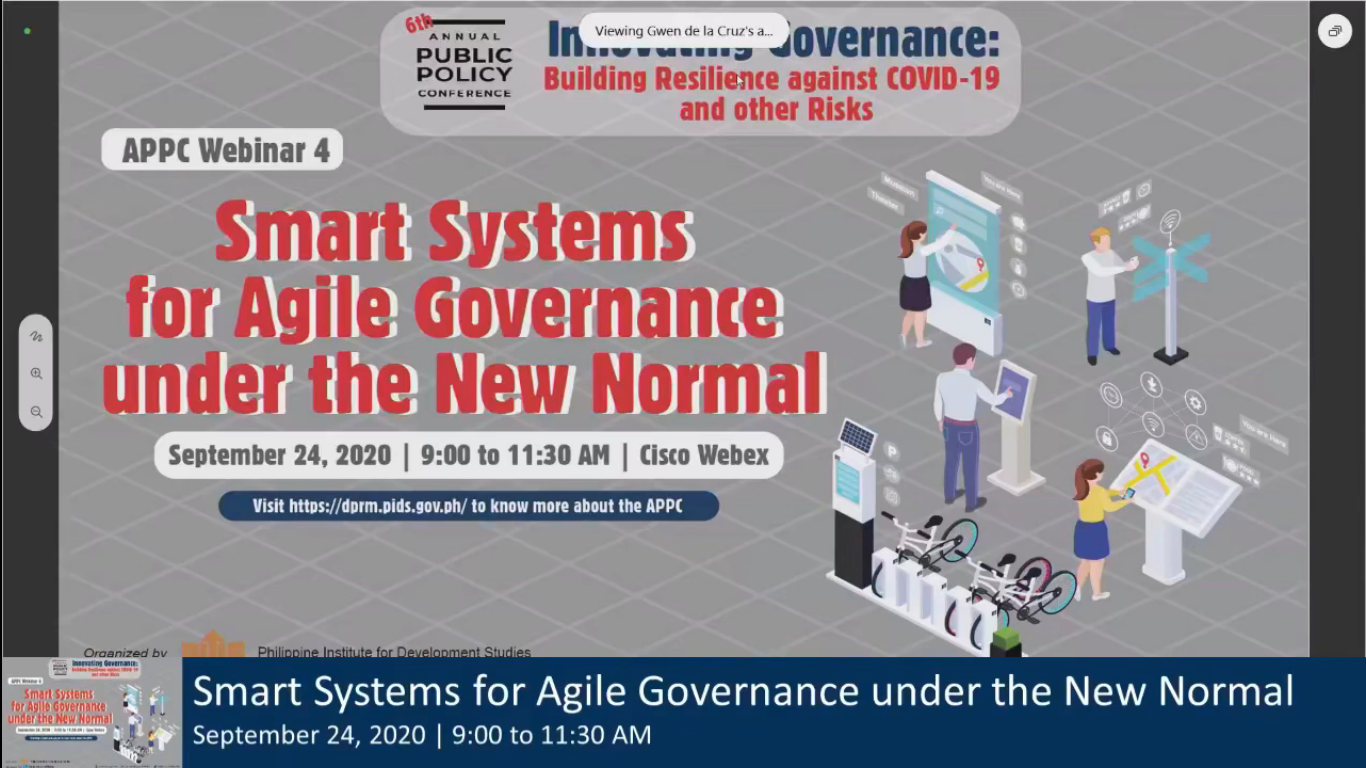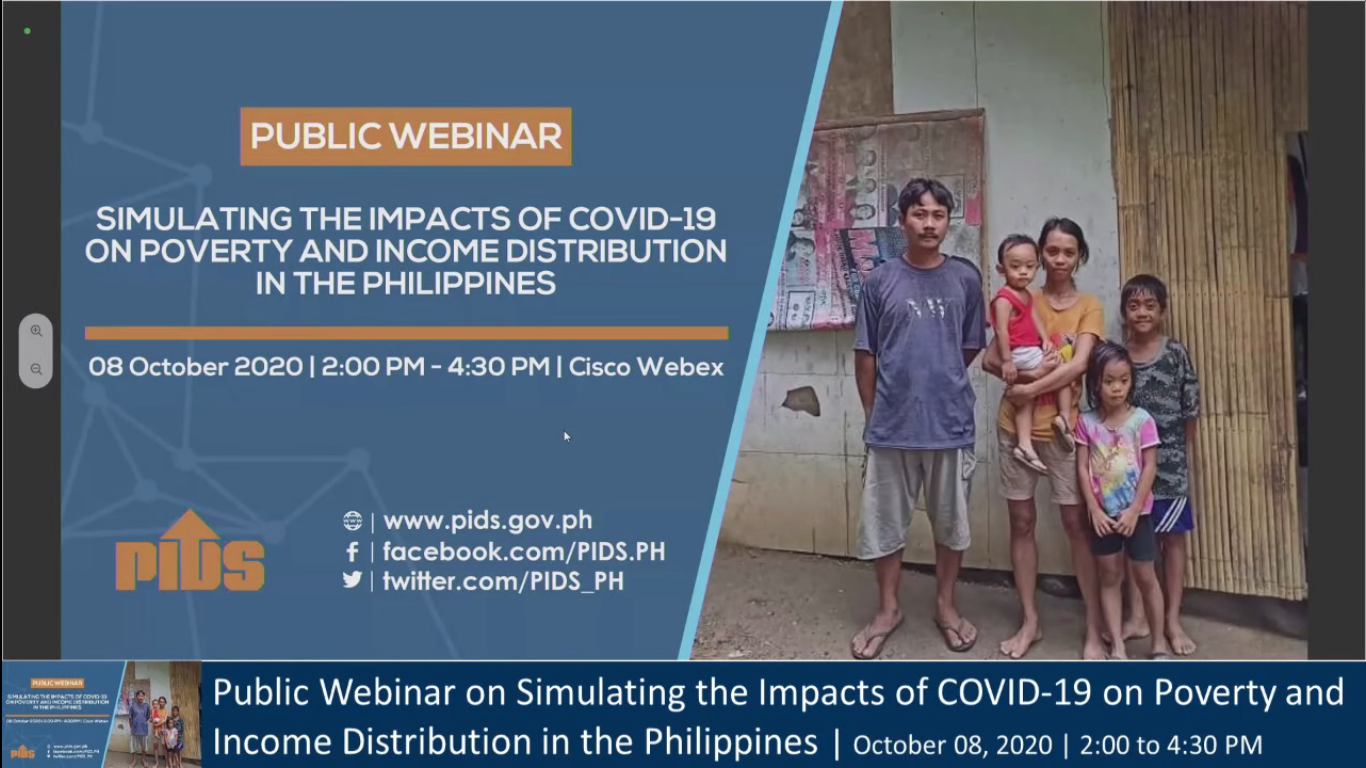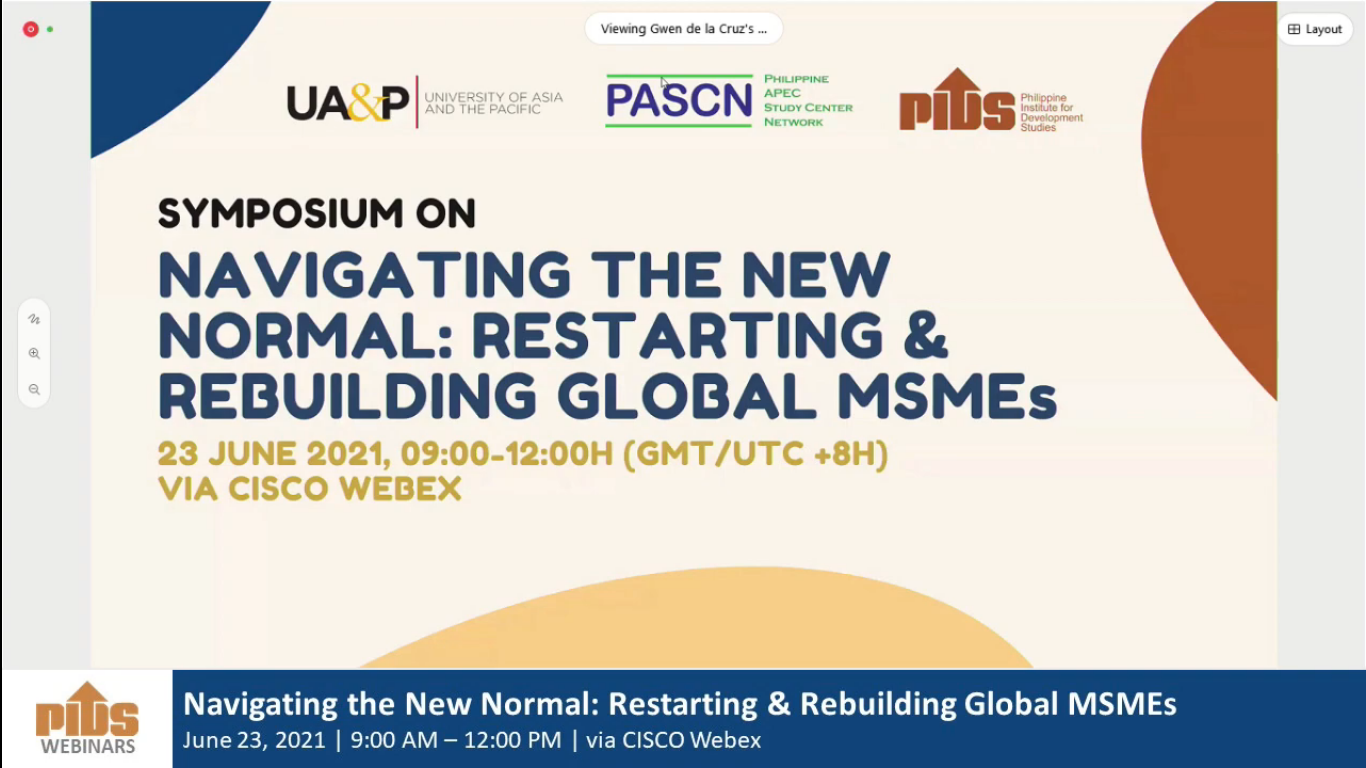Proposals to lower income tax are justified, according to the Philippine Institute for Development Studies , but they should include measures to offset the loss the government will incur from lower taxes.
Rosario Manasan, PIDS senior research fellow, said the income tax reform proposals pending in both houses of Congress have the same objective of addressing bracket creep, which results from non-indexation to inflation of personal income tax brackets.
PIDS said bracket creep occurs when employees’ income increases over time as a result of inflation. This pushes them to pay higher taxes, but their purchasing power remains the same.
The Philippines has not adjusted its personal income tax system since 1998.
Manasan also noted that the proposals all attempt to reduce the country’s high personal income tax rate relative to its neighbors in the Association of South East Asian Nations (ASEAN).
In particular, the Philippines’ top marginal personal income tax rate of 32 percent is higher than that of all the ASEAN member-states with the exception of Thailand and Vietnam.
The proposals to amend the personal income tax law assessed in the PIDS study were Senator Recto’s Senate Bill 716, Senator Aquino’s Senate Bill 1942, Senator Angara’s Senate Bill 2149, Rep. Quimbo’s House Bill 4829, and Rep. Colmenares and Rep. Zarate’s House Bill 5401.
Similar proposals have been raised by the private sector, most notably the Tax Management Association of the Philippines (TMAP).
According to Manasan, Recto’s SB 716 and Quimbo’s HB 4829 will reform the personal income tax system by adjusting the tax brackets according to changes in consumer price index between 1998 and 2015.
Meanwhile, Aquino’s SB 1942 will exempt incomes below P60,000 and raise the top bracket income threshold to P12 million.
Angara’s SB 2149 will affect changes in tax rates in phases over a span of three years, reducing the bottom marginal tax rate from 15 percent to 10 percent and the top marginal tax rate from 32 percent to 25 percent. Under this proposal, all incomes below P20,000 will also be exempted from taxation.
Colmenares and Zarate’s HB 5401 exempts income below P396,000 and raises the top threshold to P2 million.
Manasan noted that all of the proposals to amend the personal income tax schedule are clearly progressive given that the associated effective tax rates computed for various taxable income levels rises as the corresponding taxable income increases.
However, she pointed out that some proposals are less progressive, particularly Angara’s SB 2149 and Quimbo’s HB 4829.
Manasan’s analysis shows that the tax liability in Angara’s bill actually increases for those in the lower bracket during the first two years of its implementation while Quimbo’s bill increases tax for nonwage taxpayers below the P500,000 mark.
"As for losses in government revenue, the costliest bills are Quimbo’s HB 5892 and Colmenares and Zarate’s HB 5401, which is estimated at P130 billion and P232 billion, respectively,” Manasan said.
"In contrast, Recto’s SB 216 will result in a revenue loss of around P52 billion for the government while Angara’s SB 2149 will cost the government P10 billion in the first year and P61 billion in lost revenues for the third and final year,” she added.
Manasan said that whichever proposal passes into legislation, government revenue will suffer.
One way for government to recover the revenue loss, she said, is to increase the value-added tax (VAT) rate.
For instance, Manasan pointed out that a one-percentage point increase in the VAT rate is enough to recover approximately P26.25 billion loss in revenue from other taxes such as the personal income tax.
However, she noted that raising the VAT rate would nullify the increased purchasing power resulting from the modification in the personal income tax rate schedule, especially among the poorer segment of the population.
"Increasing the VAT will only recover revenue loss to a certain point, assuming that the increase in disposable income is fully spent. Moreover, the poorest will remain the hardest hit if the price of goods increases proportional to the VAT,” Manasan said.
Another option, she said, is to levy an excise tax on sugar-sweetened beverages, which based on the computation of the Department of Finance, will give government an additional P30 billion yearly.
Alternatively, government can apply an additional variable excise tax rate on petroleum products or increase the road user’s tax and motor vehicle user charge.
According to Manasan, both measures will have a positive impact on the environment through reduced pollution and congestion.//

